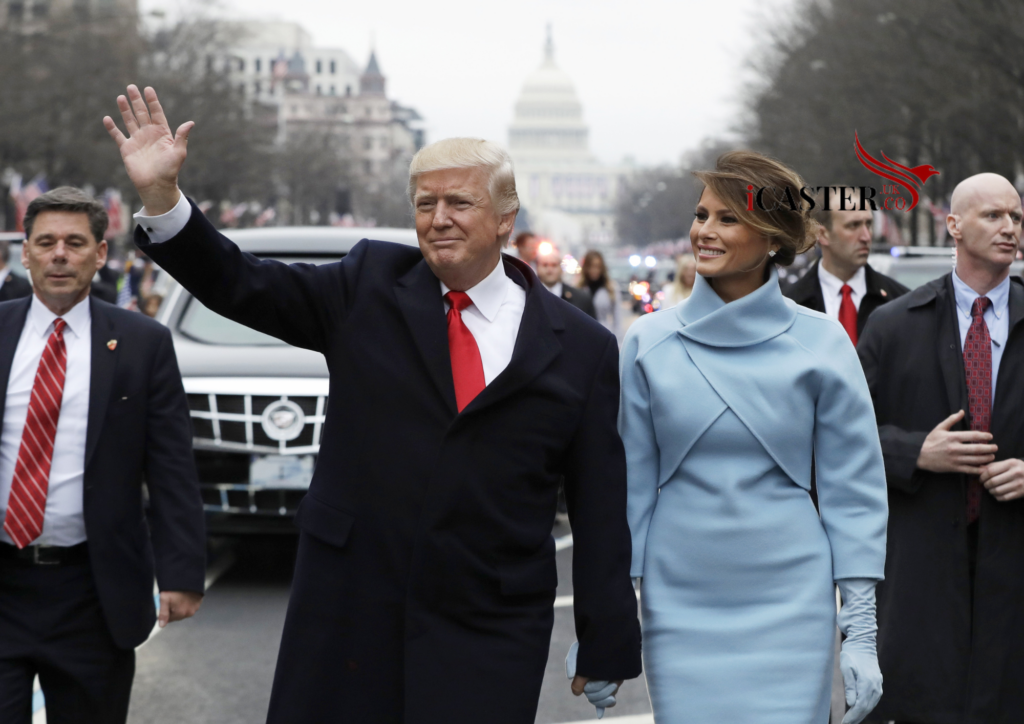Donald Trump, If Elected Again; Typically, Donald Trump’s outlined agenda for his presidency remains vague. This approach seems strategic; he has previously hinted that providing concrete details restricts his flexibility in ways he dislikes. Additionally, it appears that he hasn’t dedicated much attention to the intricate details of the role. His presidency primarily consisted of various events, some of which he initiated, later pieced together into a narrative of achievement.
In a recent conversation with Fox News host Laura Ingraham, Trump was asked about his plans for addressing the border if he were to be inaugurated in January 2025.
Trump responded, saying, “There are two things I’m going to do. Number one is drill, baby drill. And the other thing — equal, equal — is we’re going to — look, I had the safest border in the history of our country. Recorded history, because I can’t tell you about 1,000 years ago, but recorded history of the border by far.” He then went on to list various actions he took during his presidency, framing them as successful border policies. Additionally, he made a comment about President Biden in a bathing suit.

However, this two-part plan seems more like casual conversation. In December, Trump had a similar discussion with Sean Hannity on Fox News, where he also emphasized energy production and border security as priorities if he were to win reelection. When Hannity questioned whether Trump intended to become a dictator, Trump replied that he wouldn’t, at least not for long.
“He won’t behave like a dictator, at least not initially,” Trump remarked. “From Day 1, we’re sealing off the border and ramping up drilling operations. But beyond that, I won’t be acting like a dictator, alright?”
This seems to be his consistent stance now: Right from the start, he’s prioritizing expanding oil production and tightening border security. When pressed by Ingraham about his plans upon taking office, his response revolves around these issues, even if the question solely pertains to immigration.
Given this, it’s reasonable for Americans to question what Trump’s presidency would entail beyond the rehearsed applause lines he delivers on Fox News. To find out, one must examine the strategies and rhetoric of his allies, the individuals who, during his previous tenure, devised and executed the policies that contributed to Trump’s narrative of achievement.
The Washington Post delved into a specific policy domain where these strategies are more intricately detailed: immigration. According to their report: [insert details from the report]
“Trump pledges that as president he would immediately launch ‘the largest domestic deportation operation in American history.’ As a model, he points to an Eisenhower-era program known as ‘Operation Wetback,’ using a derogatory slur for Mexican migrants. The operation used military tactics to round up and remove migrant workers, sometimes transporting them in dangerous conditions that led to some deaths. Former administration officials and policy experts said staging an even larger operation today would face a bottleneck in detention space — a problem that Trump adviser Stephen Miller and other allies have proposed addressing by building mass deportation camps.”
It’s worth noting that Trump referred to the same deportation plan when he campaigned in 2015. However, during his presidency, he didn’t put it into action. This raises a key question about a potential second Trump term: Would his increased confidence and deeper understanding of governance lead him to enact his more extreme ideas? Or are these just statements he makes until he’s in office, after which he engages in sporadic actions before heading off to golf on the weekends?
One anticipated distinction is that there would likely be more individuals advocating for specific sporadic actions, with Miller being among them. While whether Trump follows through on his promises remains uncertain, he would presumably enter the White House with a group of supporters eager to swiftly carry out his wishes.
This underscores the importance of examining various external expressions of policy agendas. Trump’s team presents his scattered vision for a potential second term, labeled “Agenda47.” Meanwhile, Miller’s America First Policy Institute and The Heritage Foundation have their own extensive proposals, with The Heritage Foundation already compiling 900 pages of suggestions under “Project 2025.” Ultimately, which policies are enacted will likely depend on who holds influence.
Politico recently delved into one subset of potential Trump initiatives focused on promoting right-wing Christian politics and nationalism.
During a campaign stop in Iowa last December, Trump pledged to “create a new federal task force on fighting anti-Christian bias to be led by a fully reformed Department of Justice that’s fair and equitable.” This statement is significant, as it mirrors a promise he made in January 2016, where he asserted that under his leadership, “Christianity will have power.”
So, what actions might a more focused and seasoned Trump take to advance this worldview? Politico’s Alexander Ward and Heidi Przybyla point to proposals from The Heritage Foundation:
“It says policies that support LGBTQ+ rights, subsidize ‘single-motherhood’ and penalize marriage should be repealed because subjective notions of ‘gender identity’ threaten ‘Americans’ fundamental liberties.’ ”
“It also proposes increasing surveillance of abortion and maternal mortality reporting in the states, compelling the Food and Drug Administration to revoke approval of ‘chemical abortion drugs’ and protecting ‘religious and moral’ objections for employers who decline contraception coverage for employees.”
There are many other priorities that Trump has emphasized on the campaign trail. It’s reasonable to assume that he would actively seek to dismantle protections for civil servants in order to appoint individuals throughout the federal bureaucracy who align with his policy objectives. This mirrors his broader aim: to secure the presidency and then fill key positions with like-minded individuals. Once in power, these bureaucrats aligned with the MAGA movement could advance their own agendas and interests.
This strategy heavily relies on ideological allies, as is typical in any presidency. Reversing policies often requires legislative action or support from the judiciary. Trump’s three Supreme Court appointments during his first term would greatly assist his agenda in a potential second term. Additionally, a conservative majority on the Supreme Court would bolster any attempts to enact change through executive orders.
In terms of foreign policy, Trump would likely have significant leeway to act unilaterally. International leaders might adopt a diplomatic approach centered around appeasing the president. European NATO members are already considering contingency plans for their defense, while the Mexican government remains cautious of Trump’s threats to combat drug cartels with force.
Where Trump has the ability to act decisively and without external constraints, he would likely do so. His desire to deploy the military during protests suggests he would prioritize appointing officials who share this view, minimizing opposition if he chooses to take such action later on. He would seek an attorney general willing to investigate his adversaries, similar to William P. Barr rather than Jeffrey B. Sessions III. His willingness to grant pardons based on political loyalty, demonstrated in his first term, would undoubtedly continue.

Trump has fostered an environment where far-right voices and ideas thrive. The existence of competing plans for a potential second term reflects confidence in his reelection prospects and the eagerness of right-wing actors to gain power. Trump’s actions in a second term would depend on how he chooses to wield his executive authority and the individuals he surrounds himself with.
While he has discussed extreme measures in the past, he might now empower more radical actors to carry them out!

